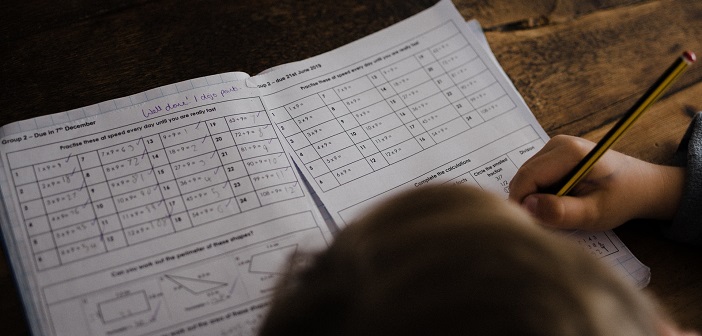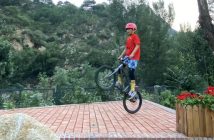The disruption that COVID-19 has caused in the traditional school system has left many parents wondering whether there is a way to take more control over their children’s education. An increasing number in Beijing are now turning to homeschooling, yet questions abound: how does it work? Where do you start? Is it legal? In this series, we dive in, talking to Beijing parents who have already started the journey about the big questions, and busting some myths along the way. Let’s get stuck in!
This week, we spoke to Charlene Ng. Although she is rather new to the homeschooling world – having only done it for a few weeks – her background as an academic coach means that she’s come out of the gates at a run. She intends to continue homeschooling her six-year-old son Asher for another year or so and shares with us a wealth of top-notch resources and advice to get parents on the right track.

“I’ve seen how my baby has become a confident, curious, and happy child”
I decided to homeschool because I have a clear idea of the kind of education I’d like for him. I’ve actually thought about homeschooling him since he was born, but an opportunity at the Italian Embassy School (and I’m a big fan of the Reggio approach) came up so he started going to the Italian school when he was 4 and a half. He was supposed to attend first grade but we were suddenly notified that the school is closing its primary section. When we were considering whether to enroll him in another international school or homeschooling, we chose the latter because, given all sorts of uncertainties and unknowns, we want a more stable learning environment for him.
I would describe our style as collaborative, student-directed with a mix of using pre-designed lesson plans, doing interdisciplinary projects, and playing games. Because of my background as an academic coach, I also provide a lot of coaching for him to build his metacognitive and thinking skills, organizational techniques, and self-management tools.

“We want a more stable learning environment for him.”
I chose this approach because I believe promoting a sense of agency is important, meaning my child has an active role in his learning and is offered a choice. Trusting and respecting my child has always been my parenting approach, and I’ve seen how my baby has become a confident, curious, and happy child because of it. Through our collaboration, we’re able to explore topics that truly inspire him, and me too!. Projects are fun but it does take a lot of my time. Thus, I mix in ready-made lesson plans to give myself more me-time.
Homeschooling offers plenty of opportunities for spending quality time with my child. I’m constantly amazed by my child’s insights and questions, and I enjoy collaborating with him on the journey of learning.
Another advantage is a highly personalized curriculum & learning style: Because we’re using more of a student-directed approach which is based on his interests and learning style, my child is highly engaged and motivated in his learning. And there’s no way my child would get such personal attention in a classroom of 20. Furthermore, I can pick the teacher or tutor to make sure he receives quality instruction.
There’s a lot of flexibility and independence. And with the educational innovation that is happening right now, I can do homeschooling anywhere in the world (well, after COVID-19) and have amazing adventures.
But homeschooling is not free from setbacks! Group work is absolutely key to learning and development, and the opportunities to engage in group work when homeschooling can be limited. But there’s are ways to get around this limitation given the large number of families doing homeschooling this year. There’s never a better time to do homeschooling than now.
Parents have to do lots of research and it’s very stressful. I studied Psychology and now work as an academic coach, and spent years thinking about learning. But when I’m looking through curriculums, boy, it’s a very stressful and confusing process for most parents! There’s a lot of fear that the decisions we make as parents will mess up our kids (even though it’s not true) or our kids would fall behind.
Time management is one area that’s tough for me because homeschooling does take time, especially at the beginning, and it’s easy to have my other work projects and me-time put on the back burner. But I keep reminding myself that there are ways to figure out the balance, for example using lots of time-saving tips such as hiring tutors, helpers, using pre-made lesson plans, doing a homeschooling co-op and so forth.

“I’m constantly amazed by my child’s insights.”
There are quite a few resources, both online and otherwise for those wishing to embark on this journey. Cathay Duff Hmeschooling review and US Common Core Standards are a good place to start. For Language Arts, I’m using a mixture of Brave Writer Approach & IEW. They’re polar opposites in some way. I’m following more of the Brave Writer approach while supplementing with IEW. For math, I use Beast Academy along with Mindset Mathematics. I took a couple of online classes on teaching math with Jo Boaler, a math professor at Stanford, and I really like her approach. I highly recommend these books. Youcubed is yet another invaluable math resource with lots of resources on how math should be taught and a database of math projects.
I use Campa Kinda for science, technology, engineering, arts, and social sciences and other interdisciplinary subjects. It’s a virtual summer camp program for k-8 so the curriculum will only be 3-month long (Jun-Sep). Podcasts like The Past and the Curious, What if World, But Why, and Smash Boom Best are great audio materials.
One resource which is invaluable to me is the Harvard Thinking Routine Toolbox since instilling a thinking habit in my child is extremely important to me. I touch on this in an article I wrote a while back. I could also not emphasize enough how important Notion is to our homeschooling. It’s far superior to other common classroom management tools like Seesaw because it’s highly customizable. It’s an organizer, a wiki, a planner, a journal, a tool for documenting my kid’s work, a tool to share my kid’s work with family and friends, a tool to facilitate group projects, and many, many more. It has a bit of a learning curve but it’s well worth the effort!
If I had any advice to give to parents wishing to start on their homeschooling journey, it would be, educating your kids (and keeping them mentally sane) to the best of your abilities is like when a baby first comes into your life. The first few months are tough, and your educational plans may have colic. But keep in mind that no one else will care about your kids as much as you. Whether your kid is doing Singapore Math or AOPS or Kumon or group/private tutoring or free form nature math, you will be doing a great job because you know what your child is able to do emotionally, mentally, and physically.
KEEP READING: Throwback Thursday: Timeless Tips for Finding a Good Tutor
Photos: Unsplash




